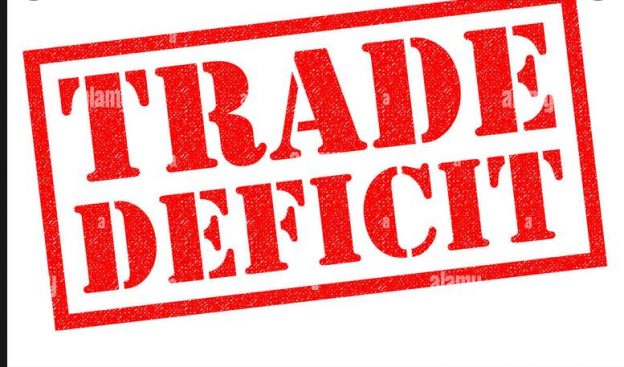Libertarian Economist Don Boudreaux recently fired off a condescending note to Lou Dobbs, after pounding the broadcaster to a pulp on the John Stossel Fox-Business television show: “A few years ago I bought your book ‘Exporting America.’ Have you bought my book, ‘Globalization’? If not (and the evidence is that you, indeed, haven’t bought my book) … [S]hould I be concerned about the trade deficit that I now have with you?”
Stossel, known for his socratic sagacity, turned smug too: It is “silly … to obsess about the trade deficit. Imagine if Mississippi worried about its trade deficit with Michigan (think about all those cars Mississippi imports.) America ran a trade surplus during the Depression. Was that good?”
I am confident the legendary Lou understands that voluntary exchanges are by definition advantageous to their participants. Costco, my hair stylist, and the GTI dealer ─ all have products or skills I want. Within this voluntary, mutually beneficial relationship, I give up an item I value less, for something I value more: a fee for the desired product or service. My trading partners, whose valuations are in complementary opposition to mine, reciprocate in kind. Silhouetted by the force of the state, this synchronized, magic market starts to splutter, and people suffer. That’s a no-brainer.
However, when it comes to the glories of an aggregate, negative balance of trade, allow me to respond to the typical libertarian post-graduate cleverness, as evinced by Dr. Boudreaux. In one respect libertarians are right: there is nothing wrong with my running a trade deficit with Costco, my hair stylist, or my GTI dealer, as I do ─ just so long as I pay for my purchases. The data demonstrate that Americans, in general, don’t.
All in all, by Vox Day’s account, “U.S. households, corporations and various levels of government” owe fifty three trillion dollars! The consumption being lauded by libertarians is debt-driven consumption. In this context, a trade deficit is significant, inasmuch as it reflects not an increase in wealth but an increase in indebtedness.
To dismiss the gap between U.S. exports and U.S. imports as an insignificant economic indicator ─ now that’s silly.
The truth is that decades of credit-fueled, consumption-based living have pulverized our economy, the defining current characteristic of which is now debt — micro and macro; public and private. “By 2007, Americans’ personal debt had surged to 133 percent of national income.” Personal consumption has hovered since the 1980s at seventy percent of GDP. And our improvident State’s debts, liabilities, and unfunded promises exceed the collective net worth of its wastrel citizens.
Unless one is coming from the Keynesian perspective, this is an economically combustive combination.
Non-stop consumption ─ enabled by government monetary and regulatory policies ─ has coincided with a transition from a manufacturing-based economy to a service-based one; and from an export- to an import-oriented economy. For some reason, this reality has excited febrile libertarian imaginations, such as that of Virginia Postrel, author of The Future and Its Enemies. Postrel lauded the general shift in the American economy from knowledge-related to retail jobs. She even faulted the Bureau of Labor Statistics for not recognizing the rise of spa-related personal services ─ manicure and massage therapy ─ as the powerhouse growth industries they are.
Contra the Keynesians who control the economy ─ and whose thinking some libertarians appear to be propping up intellectually, in this instance ─ real wealth is created not by printing paper money and galvanizing the globe’s governments to buy this government’s bonds, but by the production and consumption of products. An abundance of goods, not money income, is what makes for an increase in wealth. A natural shift must, therefore, take place in the US from an economy founded on consumption and credit to one rooted in savings, investment and production.
“Between 2000 and 2006, the trade deficit widened from less than $400 billion to nearly $800 billion,” wrote David Brooks. At $42.3 billion in May of 2010, the monthly trade deficits are at their highest since 2008.
Far from comprising discrete parts, the economy is ineluctably interconnected. Libertarians must recognize that the trade deficit belongs to a nation enmeshed in debt. From the fact that America purportedly ran trade surpluses during the Great Depression it does not follow that the nation’s current trade deficit is inconsequential as economic indices go. It could just as well mean that the economic fundamentals today are worse than they were during the Great Depression, since this country has never before been so deeply in hock as it currently is.
©2010 By ILANA MERCER
WorldNetDaily.com
July 16
CATEGORIES: Business, Economy, Free Markets, Free Trade, Libertarianism, Political Economy

 print
print